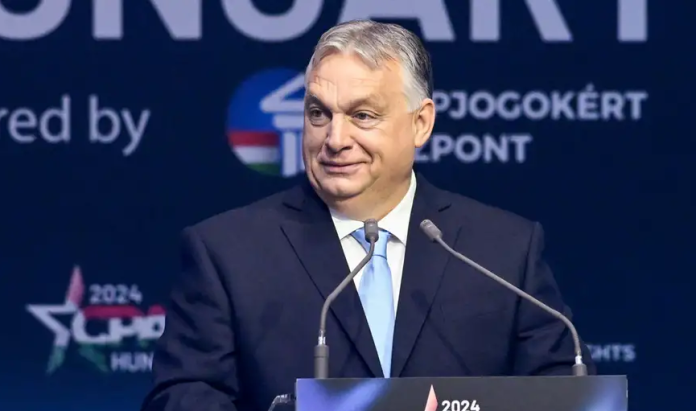Despite Prime Minister Viktor Orbán’s record as the EU’s chief provocateur, Budapest wants a successful Hungarian presidency since taking on the role of arbiter of discussions among EU countries, according to Politico.
However, the choice of the Trump-style slogan “Make Europe Great Again” as Hungary’s motto for the six-month term gives a hint that perhaps not everyone fully agrees with the message. While the rotating presidency of the EU Council is meant to put countries in the role of honest broker, requiring them to put aside national interests to reach a compromise between countries, the reality is that the position is tied to key agenda-setting powers in Brussels.
Hungary’s EU Minister János Bóka stated:
We are aware of the fact that we will be watched very closely whether we cooperate sincerely with member states and institutions and whether we will be honest brokers. This will be scrutinised closely, and maybe even the standards will be higher with Hungary than with other presidencies.
Friend or foe?
Budapest has been a persistent problem for the EU in recent years, notably by delaying or easing sanctions against Russia, blocking military aid to Ukraine and failing to uphold the rule of law at home. This led the EU to block and then partially unfreeze funds for Hungary.
Since few believe Orbán will not seize the opportunity to tilt the situation in his favour, the EU has worked hard to remove a number of confidential files before the Belgian presidency expires. Brussels allegedly removed information about the start of accession talks with Ukraine and Moldova, another package of sanctions against Russia, and billions of dollars in military aid to Ukraine.
“The pressure on the Belgian presidency was clearly there: get the deals done before Orbán comes in, to limit too much damage.”
Until early July, Budapest continued to block a number of key files, much to the annoyance of the other 26 countries. There was even talk of stripping Hungary of its voting rights, according to an EU official.
Any normal presidency would want to get those files off the table to create some goodwill before they take over. But that’s not how the Hungarians work. They waited until the last minute to unblock.
However, Péter Krekó, director of the Budapest-based political capital institute, objected:
“The Hungarian presidency only lasts for half a year so I don’t think that big damage can be done, even if these conflicts escalate between Hungary and the EU institutions.”
By the time the new Commission actually put forward any legislative proposals that member states can adopt, Hungarian presidency would be almost complete, Gwendoline Delbos-Corfield, a Green European lawmaker, noted.
It will be a very political presidency. It’s not a presidency where there will be legislative work.
External policy
With no clear political programme, Orbán is likely to use his time at the helm of the EU on the international front, according to Milan Nič, a research fellow at the German Council on Foreign Relations.
“He wants to utilise the influence that he can have bilaterally with third parties.”
Orbán endorsed former US President Donald Trump’s re-election bid and would organise an informal European Council meeting in Budapest immediately after the US election in November. In contrast to the positions of his fellow EU leaders, the Hungarian prime minister is also trying to mend relations with Russia and China.
Bóka stated that “there is nothing to substantiate the statement that we are close to Moscow, that we are friendly to Moscow, and the same goes with Beijing.” He called Hungary’s position on EU foreign policy “pragmatic” and “with the Hungarian and European interests at its core.”
Hungary’s leader could also use the presidency to influence ongoing efforts to unite the national-oriented after a shift to the right in the European Parliament elections. Across the EU, national-oriented parties are rapidly entering government.
That will be the real challenge. In the short term, Brussels will be able to limit the damage. But in the case of a Trump reelection and more unification of the right in Europe, Orbán may be able to increase his influence and leverage within the bloc.
